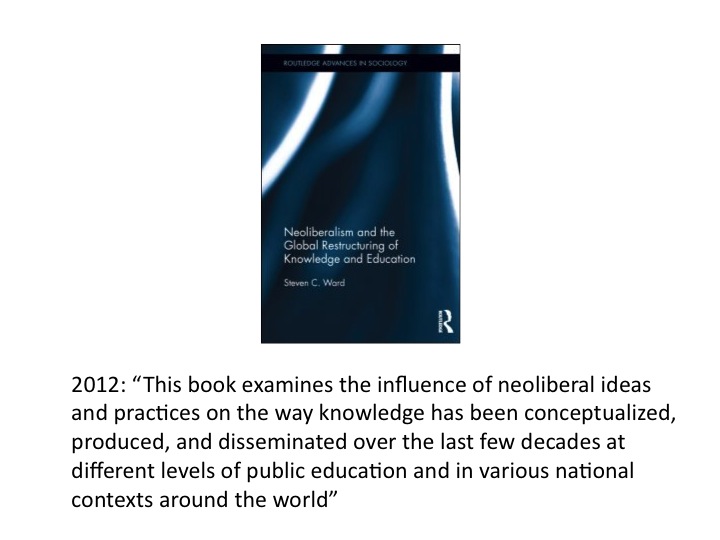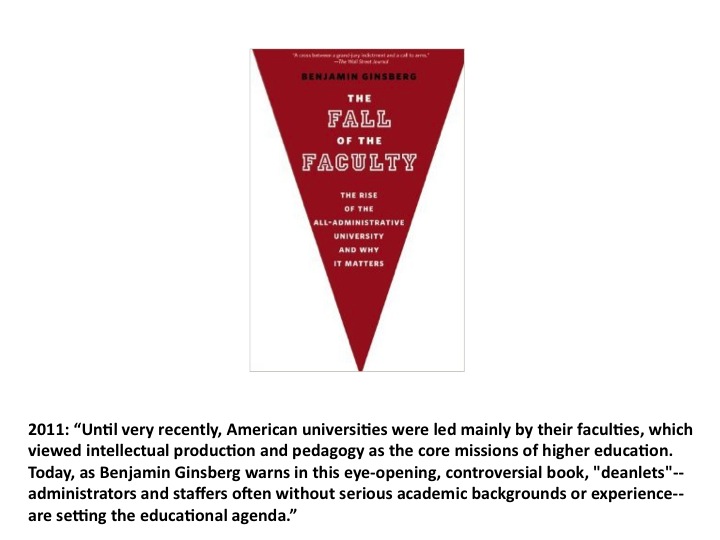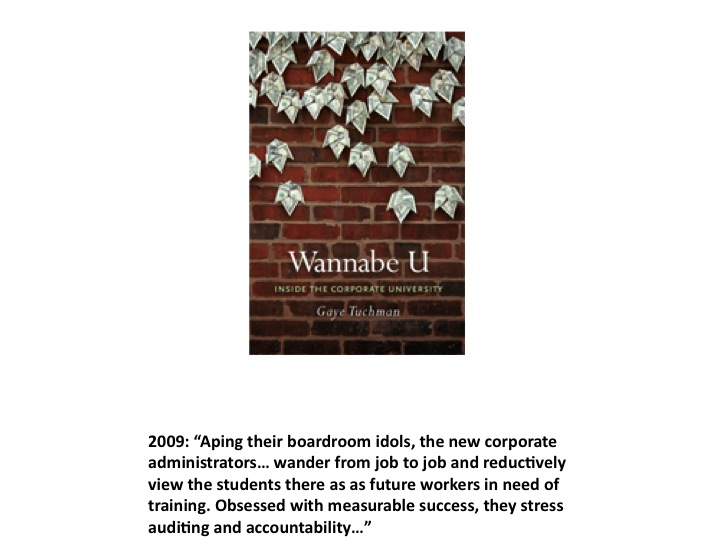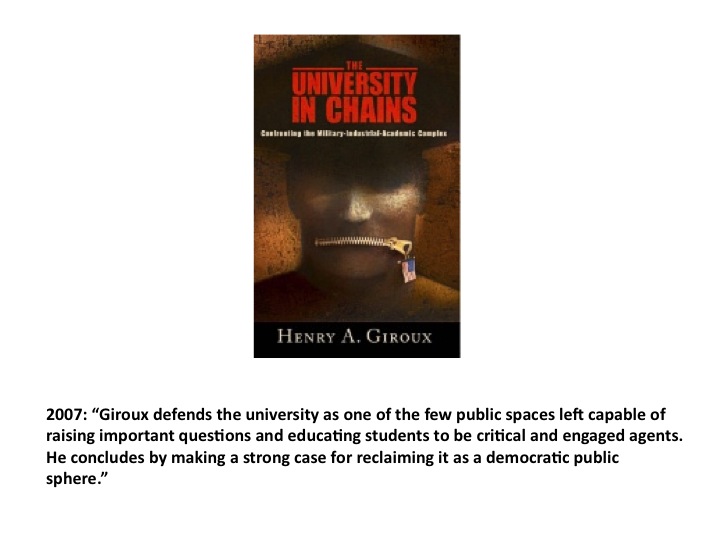Update: The books examining and exposing audit culture, the rise of the managerial class in higher education, just keep on coming, e.g .Derek Sayer's forthcoming Rank Hypocrisies. The main proponents of audit culture in higher education often seem to be former academics who've entered the one-way street of administration. They're unlikely to return to active teaching and research in any foreseeable future (I'd love to see the data on this). Additionally, reports of increased anxiety and bullying in academia just keep coming.
 The words university and universe have the same root. I have heard many academics argue that the broad range of subjects studied and the diverse nature of the place defy our ability to quantify and compare what's going on across the institution. Yet the currently fashionable "Dickeson approach" of taking a snapshot of all the programmes across the university landscape , ranking and comparing them, purports to do exactly this. This approach is popularly known as Audit Culture.
The words university and universe have the same root. I have heard many academics argue that the broad range of subjects studied and the diverse nature of the place defy our ability to quantify and compare what's going on across the institution. Yet the currently fashionable "Dickeson approach" of taking a snapshot of all the programmes across the university landscape , ranking and comparing them, purports to do exactly this. This approach is popularly known as Audit Culture.
These academic and administrative prioritization programmes, which are rolling out in slightly different formats across the Canadian Higher Education landscape, have been heavily critiqued. Many of these expensive endeavours have stopped in their tracks. This happened to TransformUS at the University of Saskatchewan.
I think that it's important to place what's happening at York University, into the broader context of how the idea of higher education as a public good has transmuted into a corporatized for-profit view of institutions: students are customers and we are producing some kind of widget that must be repeatedly monitored and measured (thereby, making work for bureaucrats).
What exactly that widget produced in universities is, remains to be well-defined by those people leading audit culture. Is it knowledge? Is it students with critical thinking skills? Is it students prepared for the workforce? Is it all of those things? Interestingly, students who give higher satisfaction ratings to their professors don't actually get higher test scores. I got this from an article in the Times Higher Education magazine, titled Education and Satisfaction are Antithetical. Or, as I like to put it to students, #YoullThankMeLater.
I agree that fee-paying students are owed my attention and that they should be learning something meaningful from me about science. I also believe that they deserve an opportunity to be mentored by me while they prepare for the stark realities of employment in their demographic. I ALSO hold the opinion, that the proliferation of university bureaucrats and administrators, including those at York, for many of whom I cannot discern precisely how they are supporting my front-line mission of teaching and research, in any short- or long-term way, bears both strong scrutiny and retrenchment on that front. Especially because it appears that the cherry-picking of certain metrics of academic performance over others, by these self-same administrators is either disingenuous or deliberate, or both; there are expert voices in survey design and polling, from the social sciences, at York, who have expressed strong reservations about our version of the Dickeson-like snapshot being undertaken.
Wrapping our minds around what's happening to universities, 60 years after the second world war, which set the stage for the higher education landscape of the global north (Europe, North America, etc), requires a bit of homework.
A recent article by Professor Marina Warner on why she resigned from her position at Exeter University in the UK and the following four recent books can bring some perspective to bear.





